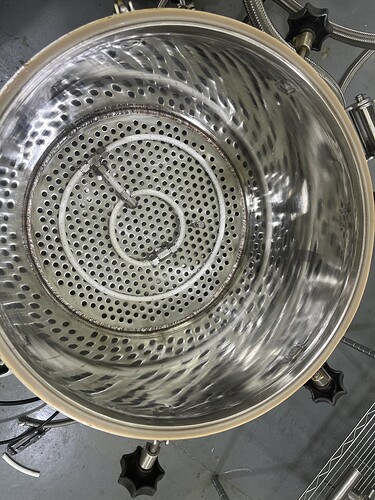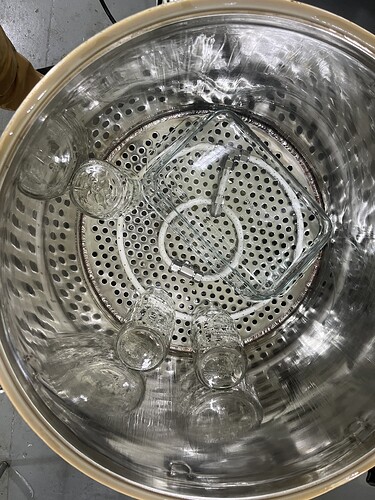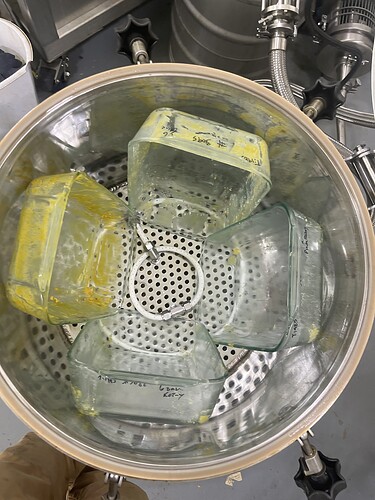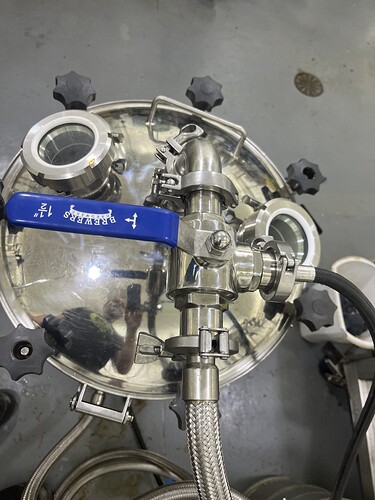my $0.02
anybody tried Monster energy drink as a cleaner?
that shit can do shit brake cleaner cant.
Does anybody have any recommendations for a sponge or brush that does not fall apart or disintegrate?
We need a pro version of these. The bristles are too loose and long for this, but if we had a pro version of silicone glove scrubbers for large glass vessels and buckets, I’d be sooo happy.
What would be the easiest way to clean a short path system that was exposed to Piperonyl Butoxide and Pyrethrin? I did my standard wash. First I put ethanol in my boiling flask and heat up Until it evaporates and takes all of the remaining distillate into my receiving flask, cleaning the head and condenser as well. The I take it all apart and soak in an alconox solution for about 30 min and scrub after. Then I rinse with tap water and then rinse in DI water. Should this be sufficient in cleaning the pesticide residue off of the glass? I really don’t want to run again until I know for certain that it is free of pesticides as I don’t need another failed COA. Thanks in advance for any input.
If you have in-house analytics, it’s pretty easy to test and see if the glass is clean. Even without them in-house, you can easily send out some tests to see from a 3rd party lab. It’s worth the peace of mind to spend the money, imho.
Perform another distillation of ethanol. Test the distilled alcohol to see how successful you were. Then perform some water distillation (of distilled water. Don’t want to have to deal with residual mineral content). Test the distilled water, and then feel really good (or really bad) about the cleaning job.
I had a similar experience with different pesticides, and it took three rounds of cleaning and testing to get it right. I never figured out where my remaining contamination was after the first round, but I was far more thorough with each subsequent pass. Haha.
Keeping my fingers crossed for you.
Thanks buddy. I will have to go that route unless someone has a sure fire way to get rid of this shite. In house analytics will be coming in the future.
Has anyone come up with some sort of ethanol reflux cabinet for cleaning resin off loads of glassware? I’m imagining something like a vacuum oven mixed with a hot food moisture cabinet like this here:
Load the glassware onto dishwasher-like racks, add a couple quarts of ethanol to the warming pan, then lock the doors and let it cycle. It would warm up the ethanol to boiling or close, vacuum assisted like a large vacuum oven or rotovap, having a cold trap or condenser in line to return ethanol to heating tray. All the oils or resins in the ethanol solution should drip to the pan/collection tray at the bottom, which could then be discarded, or processed for distillate depending on practices followed.
Materials and safety-wise it probably would be rated similar to a vacuum oven or rotovap, assuming it’s made using stainless and glass construction with appropriate gaskets.
Hmmm….![]()
We are spray washing with ethanol.
We did use to warm our dishes in one of those before hand cleaning them once upon a time.…and I did make the suggestion of putting ethanol in the “humidity” pan…but the consensus was that this was (another) one of those times I should be ignored for safety reasons.
![]()
Added a center spray ring to get better coverage from the bottom.
Also playing with hole size/number/placement.
Using 3/8” pex from Home Despot, which is easer & cheaper than prototyping with 1/2” SS
my Dishlicker goes both ways…or either way
Definitely still a work in progress
They are called vapor degreasers.




